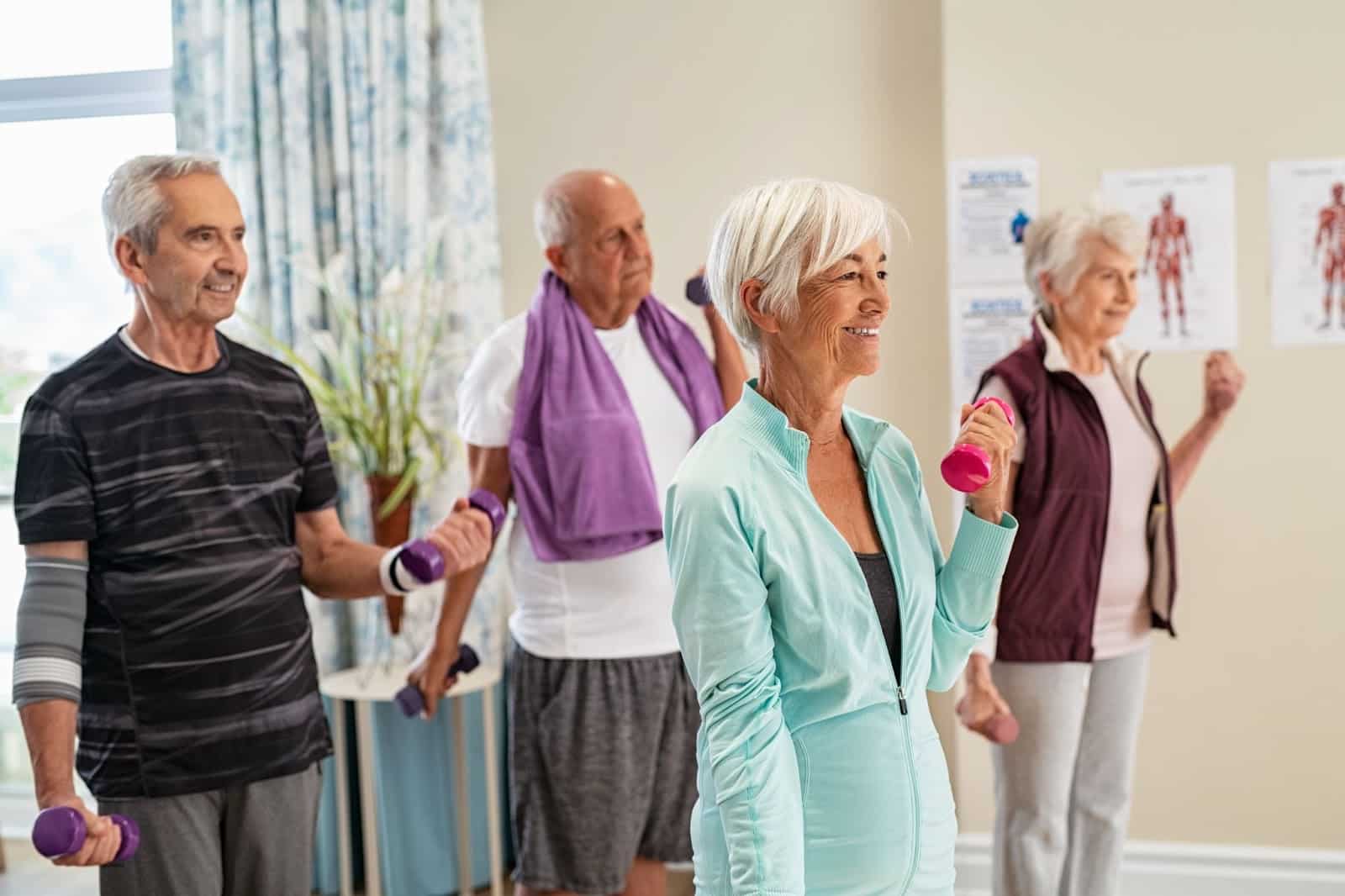Aging brings about several changes in the body that increase the likelihood of falls in older adults. Fortunately, there are some proactive steps we can take to reduce the risk of falls with your loved one.
Preventing falls in older adults is a multifaceted approach that involves making the home safer, encouraging physical activity, monitoring health, and promoting a healthy lifestyle.
How Aging Impacts the Risk of Falls
Falling becomes a risk factor as we age due to the changes that occur in our bodies. As we grow older, muscle mass decreases, resulting in weaker muscles that can affect our balance and stability. Coordination and reflexes slow down, making it harder to react quickly to prevent a fall.
Many older adults may deal with chronic health conditions that can affect mobility and balance such as:
- Arthritis: This can cause joint pain and stiffness, making walking more difficult.
- Diabetes: This may lead to nerve damage, causing numbness in the feet and affecting balance.
- Heart Disease: This can result in dizziness or fainting spells, increasing fall risk.
Some medications may have side effects that contribute to the risk of falls. Side effects from medication can include dizziness, drowsiness, and low blood pressure. When multiple medications are taken, these side effects may compound which increases one’s risk of falls.
Safety Tips to Prevent Falls
- Create a Safe Environment
Creating a safe space at home is a great way to implement additional safety precautions. Start by inspecting the living areas for potential tripping hazards. These might include:
- Loose Rugs and Carpets: Secure them with double-sided tape or remove them entirely.
- Clutter: Keep walkways clear of shoes, magazines, and other items.
- Electrical Cords: Arrange cords along walls and out of pathways.
Good lighting in your environment is helpful in fall prevention. Check that all rooms, hallways, and staircases are well-lit. Consider using night lights or motion sensor lights for evening use.
Handrails and grab bars provide extra support, particularly in areas where falls are more likely to occur. Consider installing these in:
- Bathrooms: Place grab bars near the toilet and in the shower or bathtub.
- Stairs: Install sturdy handrails on both sides of staircases for extra support while walking up or down the flight of stairs.
- Hallways: Adding rails in long hallways can provide extra support if balance becomes increasingly challenging.
There may come a time when your loved one may require the help of a mobility aid to provide extra support and balance while walking. Mobility aids like canes, walkers, or wheelchairs allow individuals to continue maintaining a certain level of independence.
- Encourage Physical Activity
Older adults are recommended to engage in physical activity to maintain cardiovascular health, strengthen muscles, and improve balance. Engaging in strength training twice a week can help build and strengthen muscle mass and improve balance. Some exercises include:
- Weight Lifting: Traditional weight lifting like simple leg lifts, squats, and arm training can strengthen legs, arms, hips, and overall core to improve balance and stability in everyday mobility.
- Resistance Bands: Using resistance bands during exercises can increase muscle resistance and flexibility.
- Barre or Pilates: Even activities that use light weights and resistance can tone overall body muscle, help improve your core, and strengthen stability.

Exercises that focus on balance help in fall prevention. Older adults are encouraged to engage in activities that enhance their balance at least once a week. This includes:
- Tai Chi: This gentle form of martial art improves balance and coordination.
- Yoga: Yoga can be practiced at an intense level to promote muscle strength and balance, and encourage meditation.
- Monitor Health & Medications
Older adults need to stay on top of their physical health assessments. Frequent health check-ups can identify any issues that may increase the risk of falls.
- Visit the Doctor: Older adults should visit their primary care physician at least once a year for an overall health assessment. They’ll review medications with your loved one to confirm that the dosage and interaction of medications are working harmoniously.
- Get Bone Density Tests: Aging decreases the density of our bones making them more prone to fractures in case of falls. Undergoing a bone assessment can help determine bone strength and recommend ways to fortify it.
Older adults are encouraged to visit their optometrist once a year for an annual comprehensive eye exam. These visits help to monitor any changes in vision and ocular health.
Older adults are at risk for developing vision problems such as:
- Difficulty seeing at night and low vision
- Cataracts
- Age-related macular degeneration (AMD)
- Vision injuries related to falls
- Promote Healthy Living
Eating a balanced diet rich in calcium and vitamin D helps to strengthen bones while protein-rich foods are great for building and maintaining muscle mass. Adequate hydration positively impacts balance and cognitive function. Adults are encouraged to have at least 4 to 6 cups of water a day.
Wearing proper footwear inside and outside of the home can help prevent slips and falls. Check to make sure shoes have a non-slip feature with good traction. Wear shoes that fit properly, are comfortable, and provide solid support. Avoid wearing loose slippers, as they can slip off while walking and increase the risk of falls.
- Engage in Community Programs
Many communities offer exercise classes that are geared toward older adults. These classes can help enhance strength and balance in a social setting.
Falls are overwhelming and emotional to experience. Some individuals may find a benefit in connecting with others who have experienced something similar. Support groups can help older adults share experiences and learn from others, gain confidence in preventing falls, and stay motivated to maintain a healthy lifestyle.
Connect with Our Community
Preventing falls in older adults is a multifaceted approach. By implementing these strategies families and caregivers can significantly reduce the risk of falls for their loved ones.
Senior living communities provide a safe environment designed to help reduce the risk of falls and injuries. Connect with our team at The Legacy at Santa Fe to schedule a tour of our community, and learn more about the benefits of senior living.
